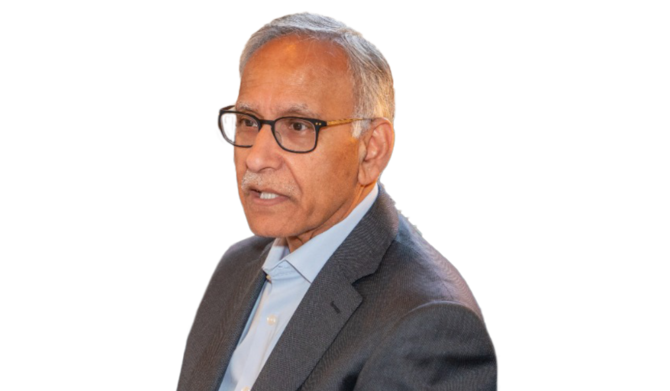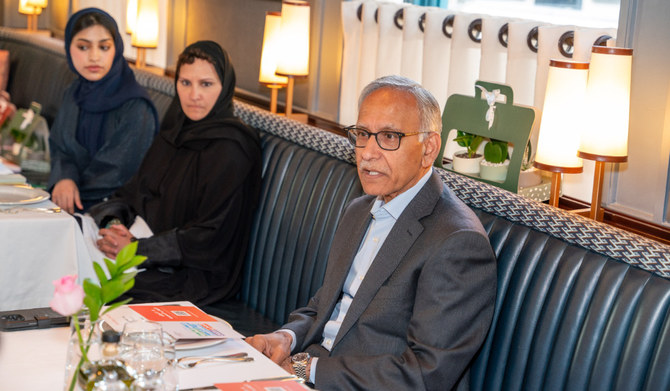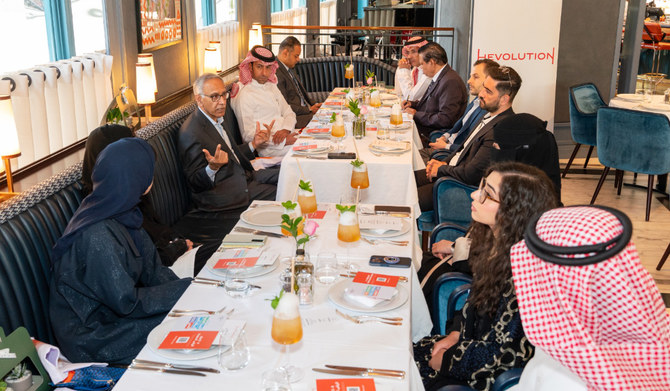RIYADH: Hevolution Foundation is funding research and early-stage investments to catalyze advances in extending healthy human lifespan while understanding the processes of aging.
Boasting over SR1.5 billion ($400 million) in research grants and early-stage biotech investments, the Riyadh-based global nonprofit organization is a philanthropic funder of geroscience, an area of research dedicated to advancing global human healthspan.
Hevolution Foundation is working to address the underlying causes of aging to help prevent the onset of age-related diseases.
The organization says that while the average lifespan in Saudi Arabia is about 74 years, the average healthspan is 64 — indicating a decade-long gap between life expectancy and healthy life expectancy — and many are living the final years of their lives in poor health.
Geroscience and healthspan science are critically underfunded, which is why Hevolution is stepping up to bridge this gap.
Dr. Mehmood Khan, Hevolution Foundation CEO
CEO Dr. Mehmood Khan said: “Geroscience and healthspan science are critically underfunded, which is why Hevolution is stepping up to bridge this gap.
“Hevolution is proud to be the world’s largest philanthropic funder of geroscience and, following the success of our first Global Health Summit in 2023 and the next summit planned for February 2025, we look forward to continuing the shift from lifespan to healthspan.”
Grant recipients include King Faisal Specialist Hospital and Research Centre, King Abdullah International Medical Research Center, and King Abdullah University of Science and Technology, as well as global institutions including Buck Institute, Northwestern University, Albert Einstein College of Medicine, Harvard University, and Massachusetts Institute of Technology.
Dr. Haya bint Khaled, the vice president of research at Hevolution Foundation, said: “With the Kingdom’s National Biotechnology Strategy — which Hevolution made vital inputs into — Saudi Arabia is innovating in health.
“Saudi Arabia is at a perfect moment in time to outpace future demographic challenges by investing in healthy longevity now, and to lead the world in addressing age-related diseases for the benefit of all humanity.”
Hevolution aims to increase the number of safe and effective treatments entering the market; compress the timeline of drug development using the latest tools and technologies; and increase accessibility to healthspan therapeutics for all.
Leveraging its annual budget of up to SR4 billion, Hevolution is committed to increasing the number of geroscience researchers globally, expanding the number of companies working in the field and attracting funding to this vital area of science.
This includes commitment to a SR10.1 million two-year grant program to create the first cohort of researchers from King Faisal Specialist Hospital and Research Centre, King Abdullah International Medical Research Center, King Abdullah University of Science and Technology, and other prestigious institutions, to explore areas such as the microbiome, aging biomarkers and senescence.
A SR18 million fund will support up to 15 postdoctoral fellowships to advance the careers of early-stage scientists in Saudi Arabia and the GCC (Gulf Cooperation Council) region.
A grant of SR75.7 million over five years will support Albert Einstein College of Medicine in New York, focused on senescence and aging, led by Dr. Ana Maria Cuervo, a leader in the aging field and member of the National Academy of Sciences.
The organization’s other commitments include SR121 million provided over five years to Northwestern University in Illinois, led by Dr. Richard Morimoto, with research focused on defining healthy proteostasis and maintaining proteostasis in a robust, resilient state.
Established in 2018 by royal order, Hevolution is headquartered in Riyadh with a North American hub in Boston, and plans to expand to other global locations.






































